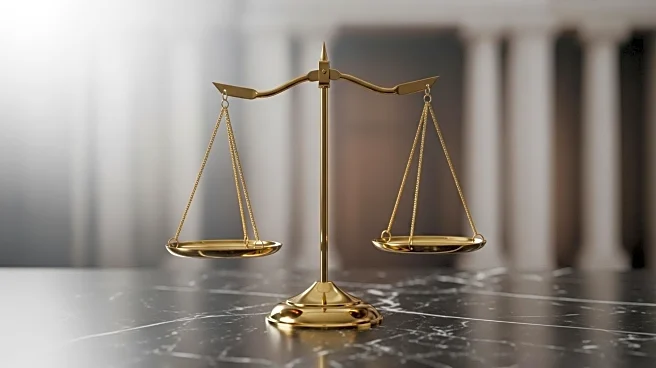What's Happening?
President Trump's executive order aimed at ending automatic citizenship for children born in the U.S. to individuals in the country illegally or temporarily has faced significant legal challenges. Over the summer, four federal courts rejected the order, and recently, the 1st U.S. Circuit Court of Appeals in Boston also ruled against it. The court's unanimous decision aligns with previous rulings, emphasizing that the order cannot be enforced. The Trump administration argues that the 14th Amendment's phrase 'subject to the jurisdiction thereof' implies that citizenship is not automatically granted to these children. However, legal scholars and historical interpretations of the amendment suggest otherwise, indicating that the amendment was intended to provide a broad definition of birthright citizenship.
Why It's Important?
The legal setbacks for President Trump's order highlight ongoing debates over immigration and citizenship in the U.S. The 14th Amendment, which has historically been interpreted to grant citizenship to all born on U.S. soil, is at the center of this controversy. The administration's interpretation challenges long-standing legal precedents and could have significant implications for immigration policy and the rights of individuals born in the U.S. The Supreme Court's potential involvement in this case could lead to a landmark decision that may redefine birthright citizenship, affecting millions of individuals and influencing future immigration policies.
What's Next?
The Trump administration has requested the Supreme Court to review the case, making it likely that the high court will have the final say on the matter. If the Supreme Court decides to hear the case, it could set a precedent that impacts the interpretation of the 14th Amendment and the scope of executive power in immigration matters. The administration remains hopeful for a favorable ruling, while opponents of the order argue that it undermines constitutional protections. The outcome could influence future legislative and executive actions regarding citizenship and immigration.
Beyond the Headlines
The controversy over the birthright citizenship order raises broader questions about the balance of power between the executive branch and the judiciary. It also touches on the ethical considerations of altering long-standing constitutional interpretations that have provided a foundation for civil rights in the U.S. The debate may also reflect deeper cultural and political divides regarding immigration and national identity, potentially influencing public opinion and policy discussions for years to come.








